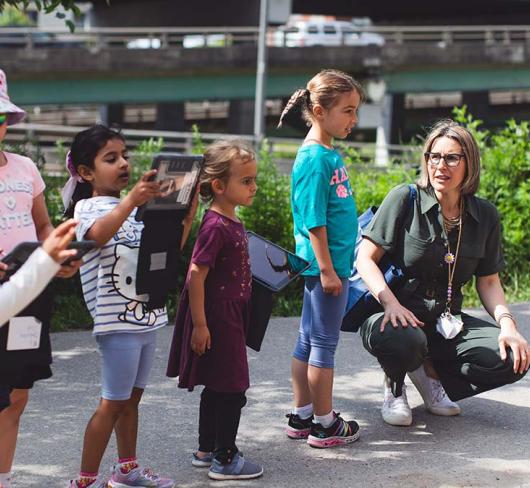Imagining a Future: When Is a Question a Good Answer? Recommendations to Teachers About the Relationship Between Poverty and Schooling
Recently ETFO asked me to review the research and professional literature on the relationship between poverty and schooling so that the federation work with members to develop practices and approaches that will help all students succeed. The literature review asks two difficult questions:
Can schools make a difference?
To change the relationship between poverty and schooling, would policies directed at the societal (macro) level or the school (micro) level make more difference?
All traditional measures of school success systematically rank students from poor families lower than their wealthier peers. For more than 40 years, educational researchers have argued that outside-of-school influences, especially the family, have a greater impact on student achievement outcomes than any other variable. Many argue that in order to fix schools society must be fixed first.
However, “effective schools” researchers, who focus on highly successful high-poverty schools, argue that when educators take this position, they’re making excuses for low performance by schools.
How do we view students?
When we describe what is or should be “different” about schooling for children affected by poverty, are we using an unstated point of comparison, one that not only draws attention to inequalities but also might reinforce “deficit frameworks” of students and communities; that is to say, do we look at children and see what’s there, or do we look at children and see what’s missing? Many of the policy recommendations that deal with poverty and schooling are built on deficit frameworks. Some of the most popular professional development resources for teachers working with students in poverty rely on unsubstantiated stereotypes of communities, families, and learners, and provide generic lists of pedagogical remedies. The literature review raises questions about how best to target interventions for children experiencing poverty without blaming students or their families for their poverty or finding them lacking in abilities.
The either/or temptation
A focus on either/or problems and either/or solutions is not just incomplete but also harmful. Research findings from the macro and micro levels are unambiguous: outside-of-school influences play a large role in shaping learning; and some schools do far better than others in resisting this deterministic relationship.
To talk about one aspect of the relationship between poverty and schooling without at the same time talking about the other contributes to the false idea on the one hand that schools can do nothing and on the other hand that schools can do everything. This is the macro–micro tension. The challenge, therefore, is to tell a consistent story about the importance of school initiatives in the context of other mutually supportive social policies.
Secondly, deficit frameworks of children living in poverty shape policy and practice. Educators must consistently identify and rebut these frameworks because, among other negative impacts, they make it impossible to envision education as a collective endeavour. Schools and communities have different roles in rearing and educating children. But schools function better when these roles are considered complementary and not adversarial, and when communities are not described only in terms of what they lack and how they fail.
When educators articulate a more comprehensive version of what it means to work with communities in poverty, we accomplish something quite significant: we take a stand against the sometimes overwhelming public discourse that blames poor people for their poverty and that excuses unacceptable degrees of educational inequality.
Resources
Allen, JoBeth. Creating Welcoming Schools: A Practical Guide to Home-School Partnerships with Diverse Families. New York: Columbia University, Teachers’ College Press, 2007.
Barr, Robert and William Parrett. The Kids Left Behind: Catching Up the Underachieving Children of Poverty. Bloomington, IN: Solution Tree, 2006. Haberman, Martin. Star Teachers of Children in Poverty. Bloomington, IN: Kappa Delta Pi, 1995.
Information on culturally responsive teaching is available on the website of the National Education Association at nea.org/teachexperience/ divk040811.html

